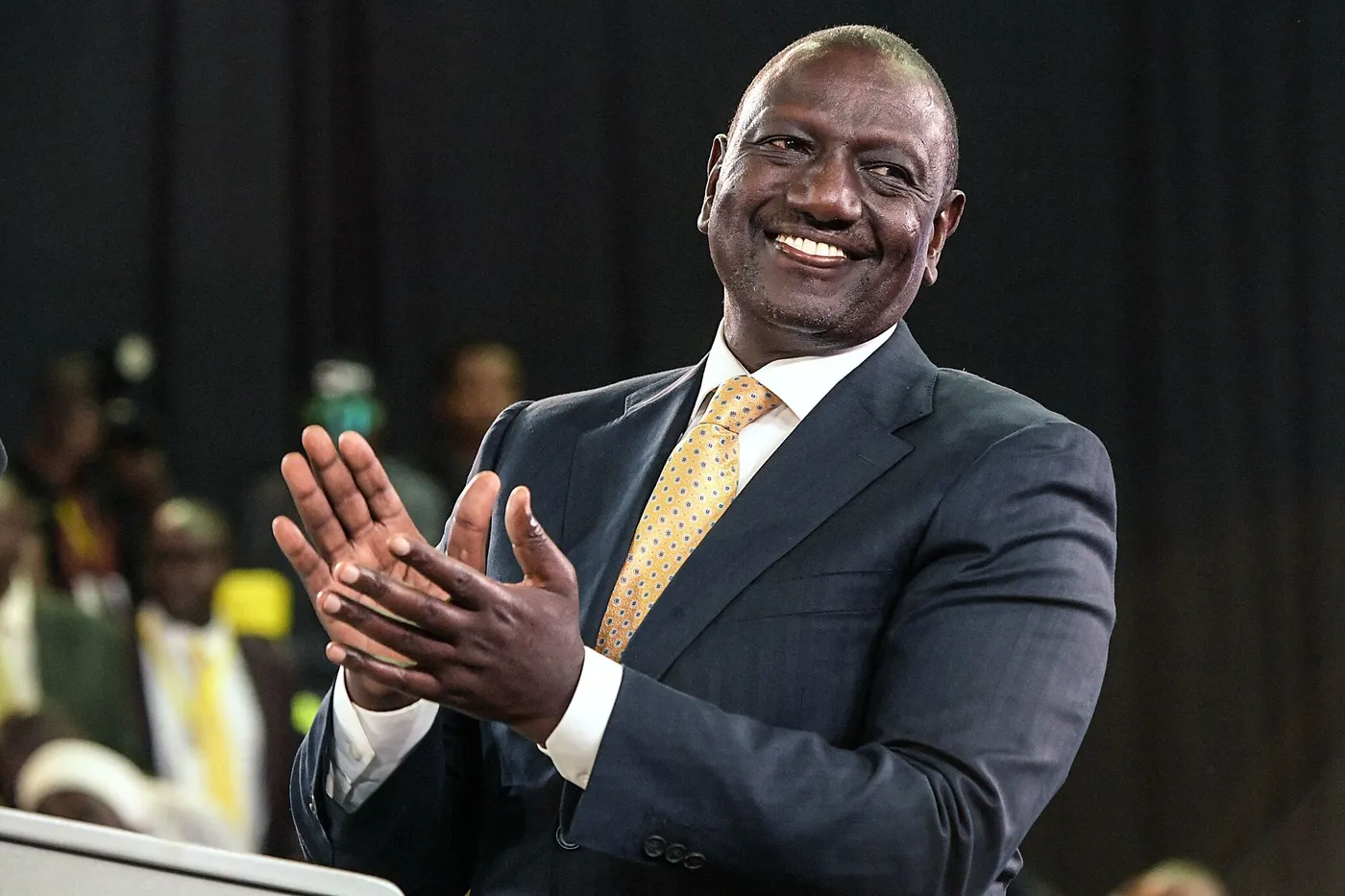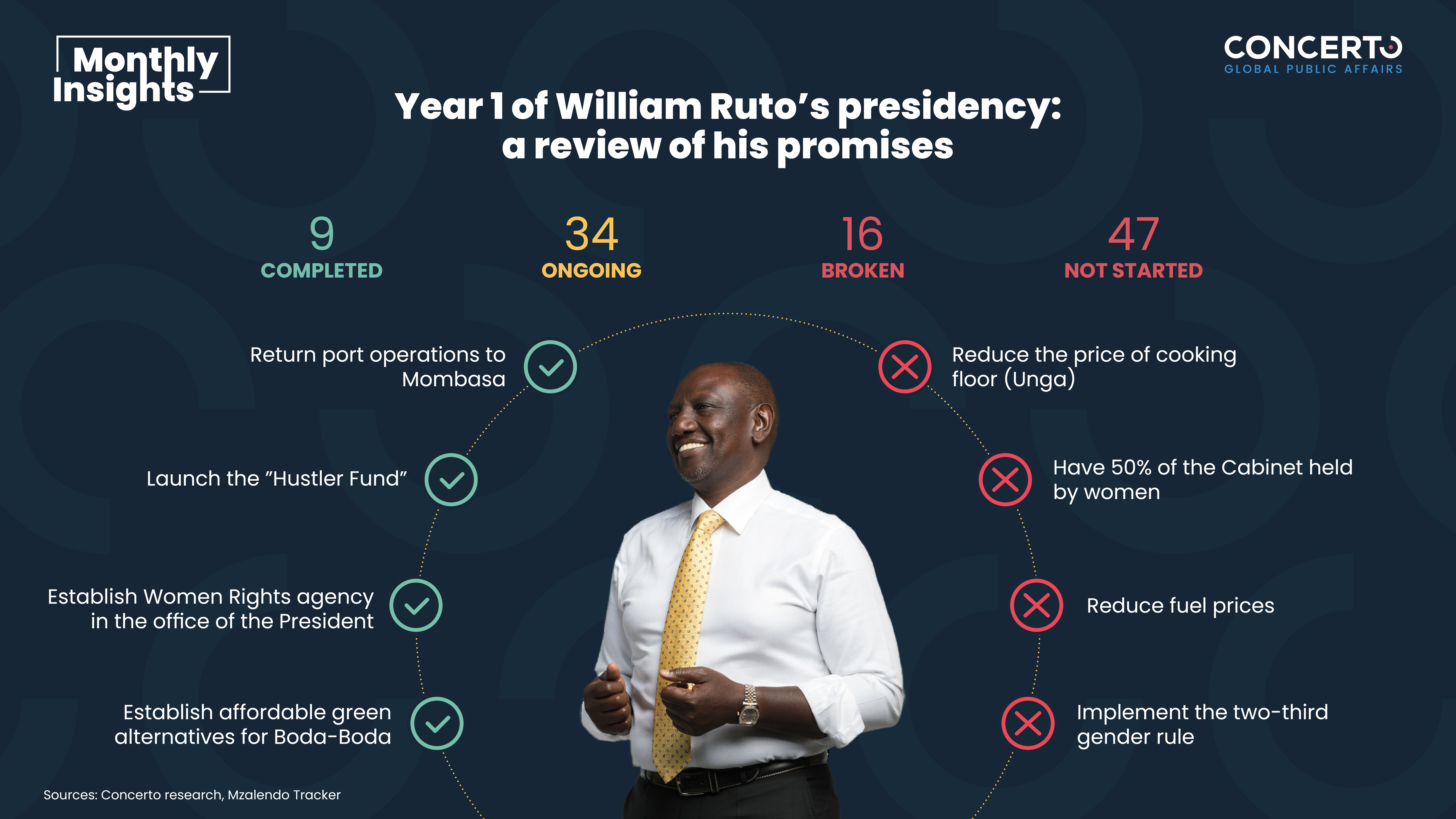Back
Kenya: How does the “hustler-in-chief” fare after one year in office?
3 October 2023

Analysis
A look back at William Ruto's first year as President, between international recognition and controversial domestic achievements. The Kenyan President, who defeated Raila Odinga, put improving purchasing power at the top of his agenda. But where does this stand today? What can we expect from the rest of his mandate?
The Bottom Up Economic Transformation Plan 2022-2027 is at the heart of William Ruto's strategy. In his first few months in office, the Kenyan President was able to push through key elements of his program, such as the establishment of a hustler fund for financial inclusion, and the development of Mombasa's port activities. These projects were adopted thanks to a close-knit parliamentary majority.
However, the ambitious Kenyan president had to revise his plans in a difficult economic climate, with soaring public debt and rising inflation. The lack of concrete solutions led to protests, giving the opposition a new platform. The introduction of new taxes in 2023, including a 1.5% levy on salaries and a doubling of VAT on fuel, has drawn criticism. The hustler fund, despite its promise, is showing signs of weakness: in June 2023, only 10% of Kenyans perceived it as a success, compared with 30% in March of the same year, according to a study by Tifa Research. One reason for this is the fund's payment defaults, which reached $20 million in August 2023.
An international presence praised
On the international stage, Ruto has made his mark. He questioned the global economic order, which he described as “a two-lane highway” and called for greater support for indebted African countries. At the Paris Summit for a “New Global Financial Pact”, he declared that the current financial architecture was “unfair and inequitable” calling for reform of the IMF and World Bank. William Ruto has also become a champion of the environment. In early September, a few months ahead of COP 28, at the Africa Climate Summit in Nairobi, he announced the adoption of the Nairobi Declaration, a collective plea by African leaders for green growth. They call for “increasing Africa's renewable energy capacity to nearly 300 gigawatts by 2030 to combat fuel poverty and boost global supplies of clean, cost-effective energy”. With almost 80% of its energy coming from renewable sources, Kenya has the potential to become a green leader on the continent. Progress is set to continue, as evidenced by the June investment by French mission company Meridiam in the Kipeto wind farm project. On the international climate scene, Ruto could also benefit from the end of Ali Bongo's presidency. Indeed, the former Gabonese President was previously omnipresent on these issues.Internally, the urgent need to speed things up
Criticized nationally for his disappointing track record – only 9 campaign promises have been fulfilled in a year – William Ruto will have to step up the pace and address a number of priority issues for Kenyans. His main task over the coming months will be to address the rising cost of living. Kenya has experienced a wave of inflation in recent months, in a complex international context. The war in Ukraine has had a huge impact on the price of food (+7.5% in one year) and transport (+13.1% in one year). In response, President Ruto announced on Tuesday, September 19, that discussions were underway with Ukraine to establish a grain hub in Kenya to address food insecurity in the country and the region. In the face of soaring fuel costs, the choice has been made to accelerate the energy transition in the field of mobility. Partnerships have been signed with companies such as Uber and Spiro to reduce transport costs and reduce the country's dependence on hydrocarbons. The second item on his agenda will be debt reduction, the majority of which is held by China. With debt levels rising steadily, reaching $70 billion last June, the renegotiation of certain agreements is on the agenda. On the fiscal front, the adoption of the new finance law should enable the government to generate additional resources, thereby reducing recourse to loans from international lendersAbout the author
Kevin Nana is a consultant at Concerto, he specialises in economic issues and in particular the infrastructure and transport sectors in Africa. For further insights and analysis, or to better understand how Concerto can support your business, please email insights@concerto-pr.com.